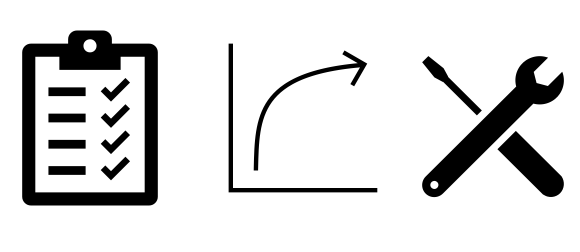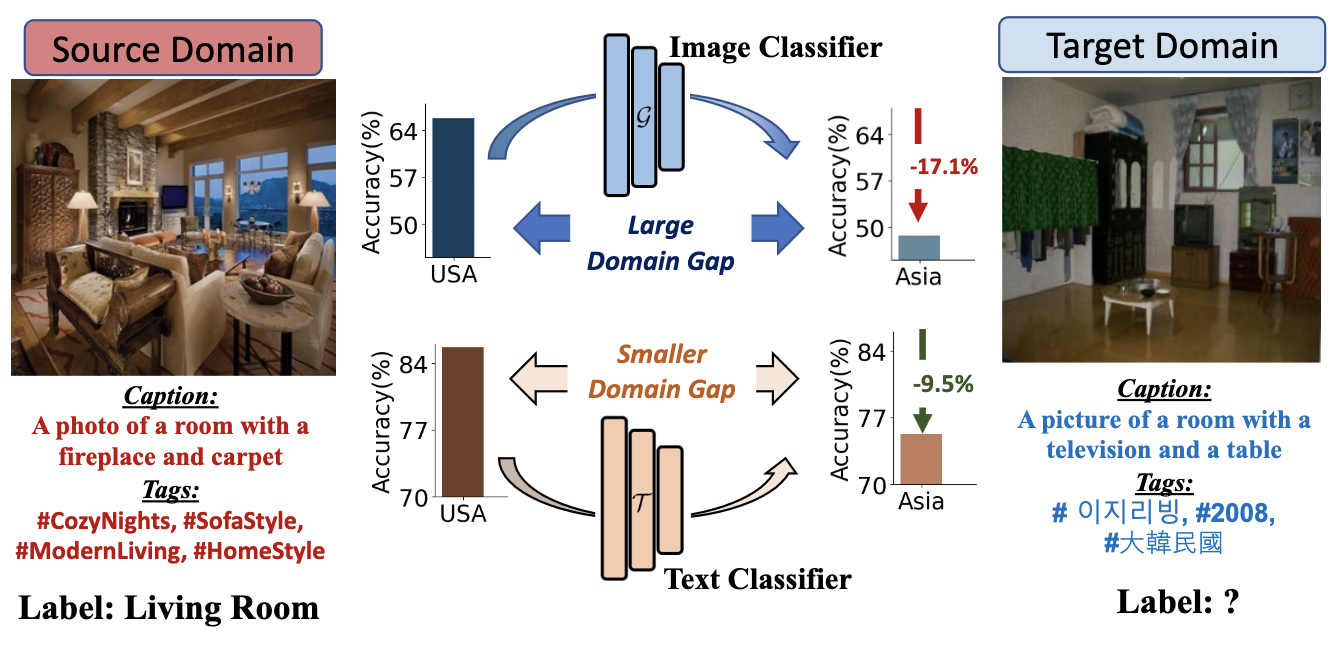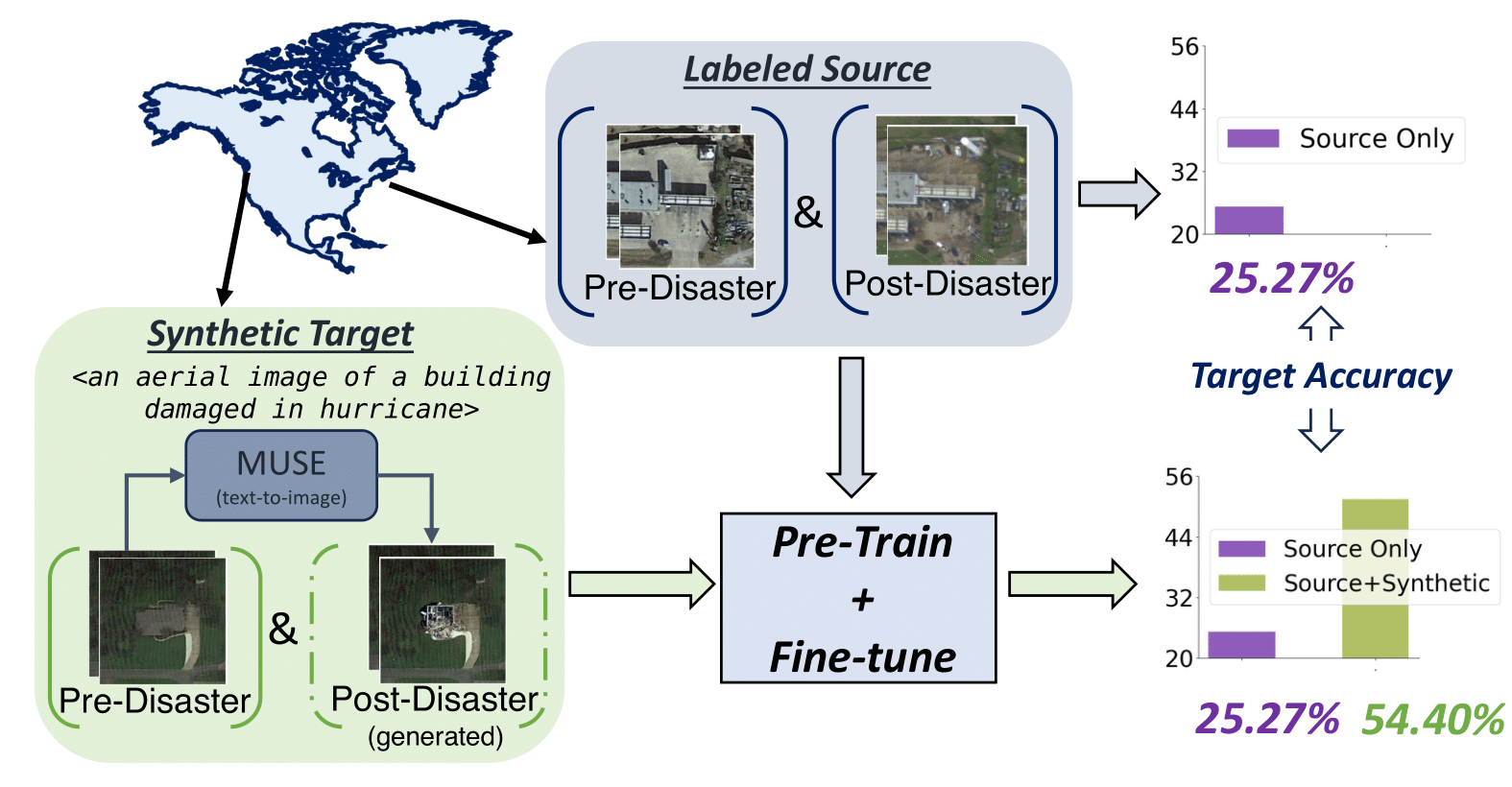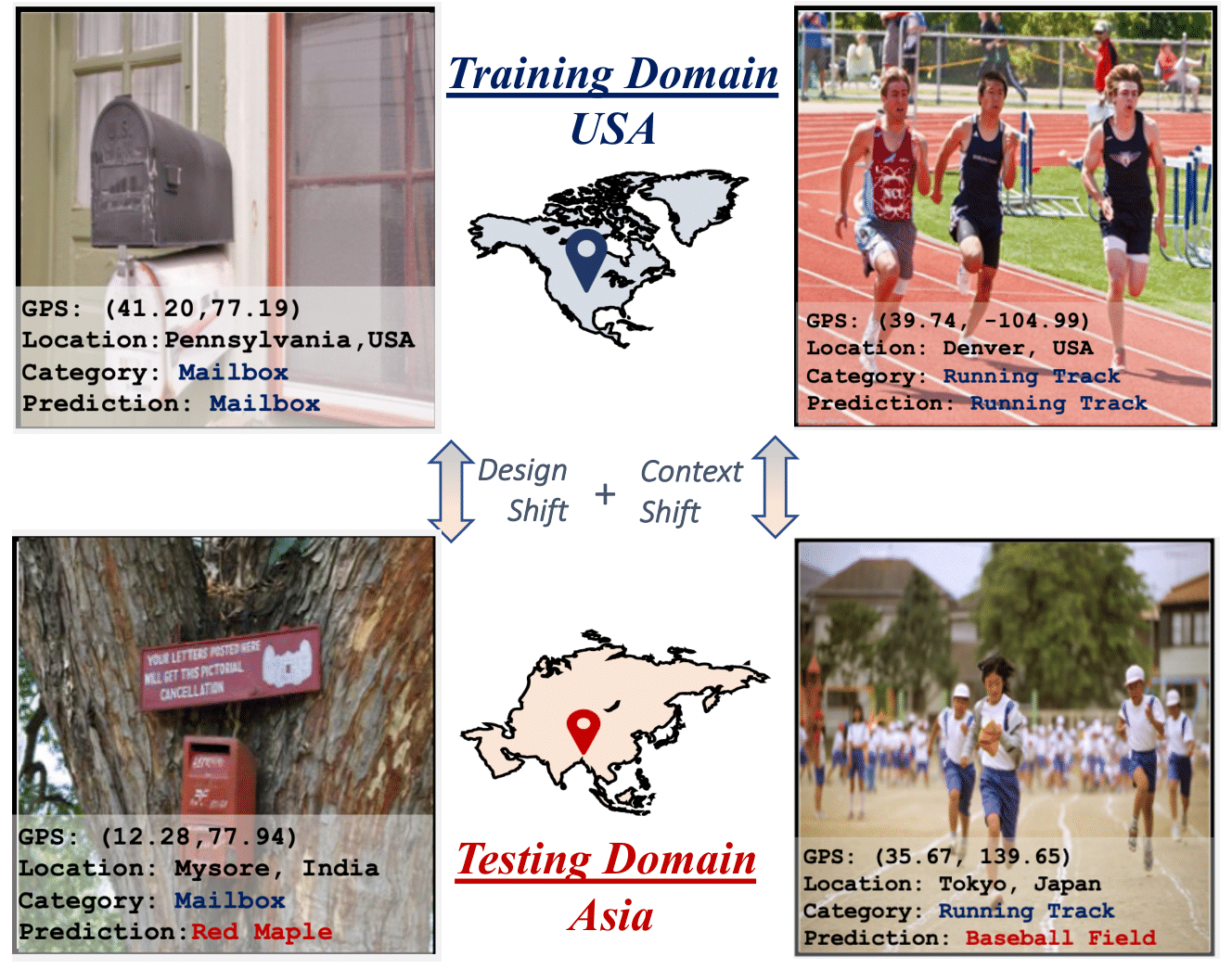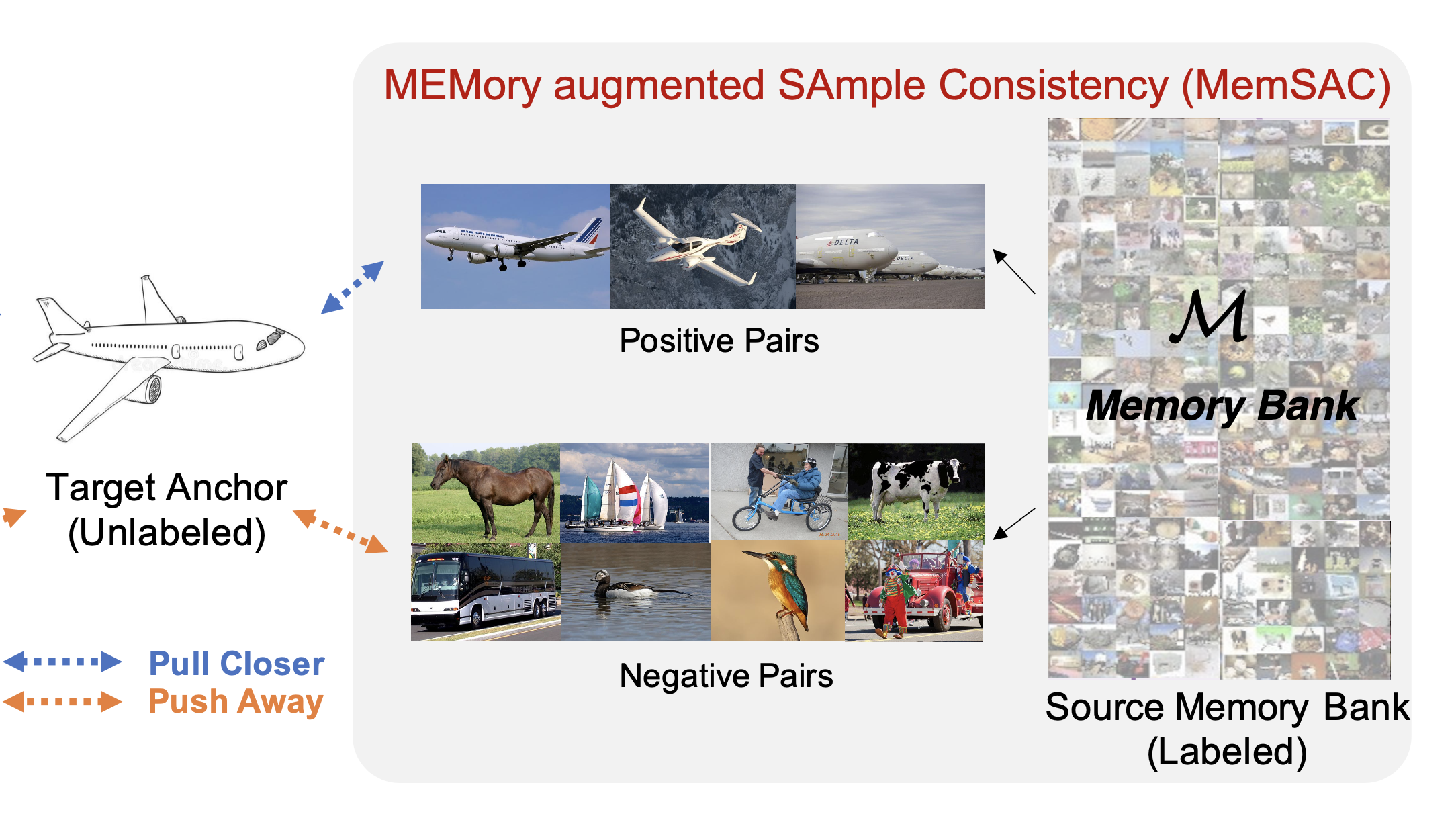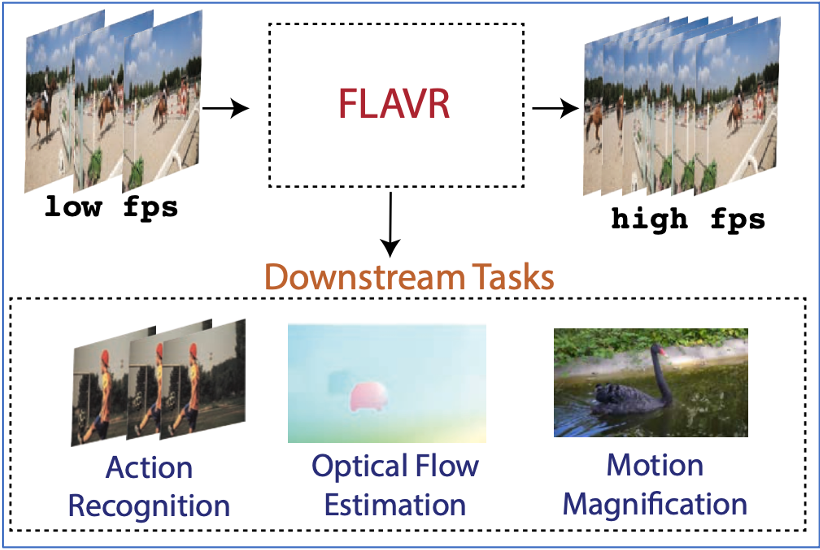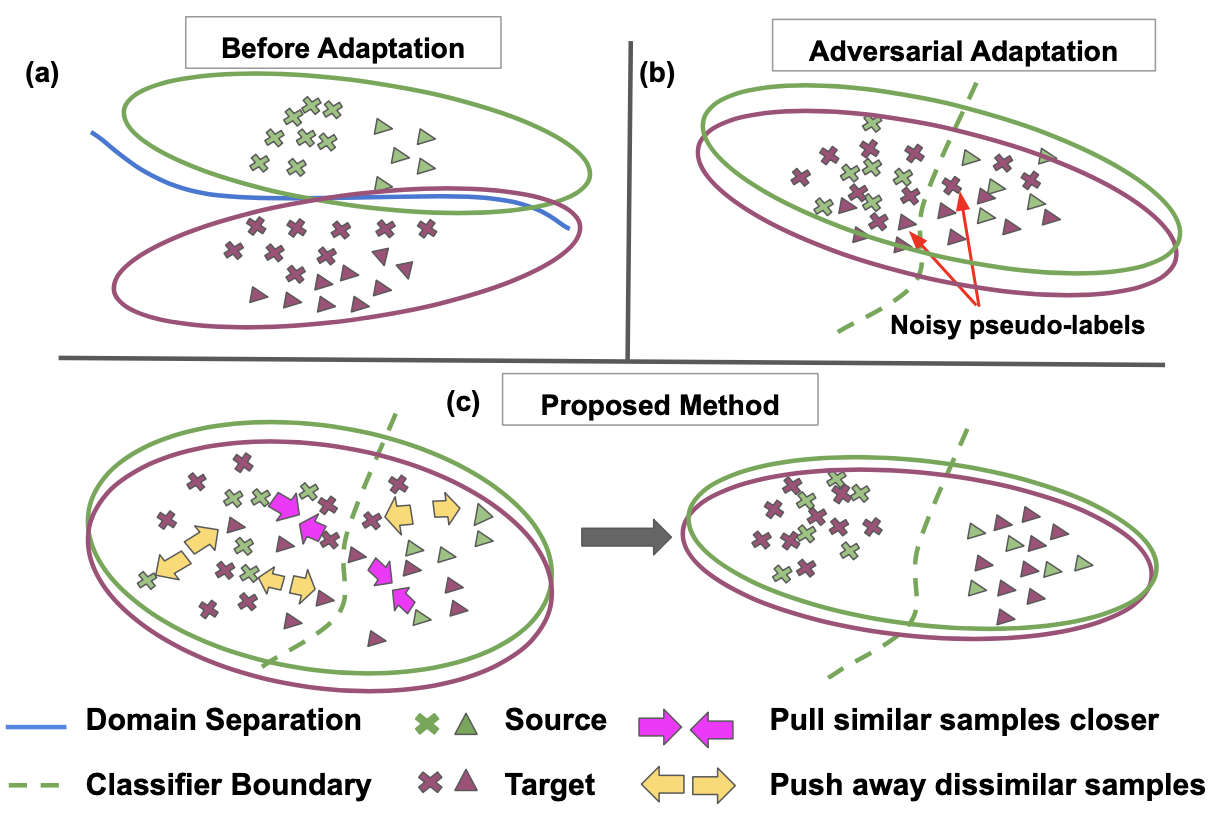|
I am a research scientist at Meta working on multimodal generative models. I previously completed PhD from the CSE department at UCSD advised by Prof. Manmohan Chandrakar. My PhD research focused on learning label-efficient representations from large-scale images and videos that are useful and transferable across a wide range of domains. My thesis can be found here. I am fortunate to have interned at Google Research and Facebook AI Research during my PhD study. I also recieved the IPE PhD fellowship in 2021. |

|
CV /
Research Statement
Email /
Google Scholar /
GitHub /
LinkedIn
| Oct 2024: Started working as a research scientist at Meta in the Menlo Park headquarters. |
| July 2024: One paper on domain adaptation accepted to ECCV 2024 in Milan, Italy. |
| May 2024: One paper on language-guided domain transfer accepted to ICML 2024 in Vienna. |
| April 2024: Two papers on open-world instance segmentation and synthetic data for robust disaster assessment accepted to workshops in CVPR. |
| Jan 2024: Successfully qualified the PhD candidacy exam, and actively looking for full-time positions. |
| June 2023: Started summer internship at Google Research in Mountain View campus! |
| May 2023: We are conducting a workshop on geographical robustness in computer vision at ICCV 2023, please see the website for details! |
| Mar 2023: GeoNet accepted to CVPR 2023! |
| Jan 2023: FLAVR got selected as the Best Paper Finalist WACV 2023! |
More
| Dec 2022: Selected as Highlighted reviewer at ICLR2022 and Neurips 2022. |
| July 2022: MemSAC accepted to ECCV 2022. |
| June 2021: Started internship at FAIR, MPK to work on open-world learning. |
| May 2021: One paper on domain adaptation accepted at CVPR 2021! |
| Sep 2020: Recipient of IPE PhD fellowship for the year 2020-21. |
| Aug 2020: Our paper on training neural network for molecular force predictions is accepted to the Journal of Physical Chemistry. |
| June 2020: Joined Facebook AI as a summer intern with the multimodal learning group. |
| Dec 2019: One paper on datasets for resource constrained semantic segmentation accepted to NCVPRIPG 2019. |
| Sep 2019: Moved to sunny San Diego! Starting as a PhD student at CSE department in UCSD from Fall 2019. I will be working with the Visual Computing Group. |
| Jul 2019: Our paper on Universal Semantic Segmentation is accepted to ICCV 2019. |
|
Tarun Kalluri , Sreyas Ravichandran, Manmohan Chandraker. ECCV, 2024 arxiv / pdf / Code / reviews / poster New standardized training framework for unsupervised adaptation with several practical insights for improving performance of domain adaptation methods. |
|
|
Tarun Kalluri , Bodhisattwa Prasad Majumder, Manmohan Chandraker. ICML, 2024 webpage / arxiv / pdf / Code / reviews / poster Language guided transfer using natural text descriptions to improve unlabeled domain robustness in images and videos. |
|
|
Tarun Kalluri , Jihyeon Lee, Kihyuk Sohn, Sahil Singla, Manmohan Chandraker, Joseph Xu, Jeremiah Liu Generative Models Workshop, CVPR, 2024 arxiv / pdf/ poster Synthetic data generation using text-to-image models for robust disaster assessment across geographies from aerial imagery using limited labeled data. |
|
|
Tarun Kalluri , Wangdong Xu, Manmohan Chandraker. CVPR, 2023 webpage / arxiv / pdf / code / reviews / poster/ dataset New large-scale dataset to study generalization ability of vision models across diverse geographies. |
|
|
Tarun Kalluri , Weiyao Wang, Heng Wang, Manmohan Chandraker, Lorenzo Torresani, Du Tran L3D-IVU Workshop, CVPR, 2024 project page / arxiv / pdf / code / poster Open-world instance segmentation using a top-down framework assisted by bottom-up supervision. |
|
|
Tarun Kalluri , Astuti Sharma, Manmohan Chandraker. ECCV, 2022 webpage / arxiv / pdf / code / reviews / poster Memory-based consistency losses to scale unsupervised domain adaptation to a large number of classes, including fine-grained datasets. |
|
|
Selected as finalist for Best Paper Award WACV, 2023 MVA Special Issue on WACV Award Finalists, 2023 arxiv / MVA SI Award Edition / pdf / project webpage / video / Code/ reviews / Colab Fast, accurate and flow-free video frame interpolation technique using space-time convolutions, capable of single shot multi frame prediction. |
|
|
Astuti Sharma, Tarun Kalluri , Manmohan Chandraker. CVPR, 2021 arxiv / poster / code Proposes multi sample contrastive loss using instance level similarities across source and target domains for robust feature alignment and knowledge transfer. |
|
|
Tarun Kalluri , Girish Varma, Manmohan Chandraker, CV Jawahar ICCV, 2019 pdf / poster / reviews / code Addresses geographical disparities between semantic segmentation datasets with minimum labeling overhead from each domain. |
